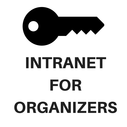Comité d’organisation
Noémie Combe (Max Planck Institute for Mathematics in the Sciences)
Geoffroy Horel (Université Sorbonne Paris-Nord)
|
At the intersection of algebra, geometry, topology and mathematical physics lies the notion of operad. An operad is a well defined mathematical object that allows to code operations with multiple entries. Operads are used to organise and study higher structures appearing for instance in deformation theory and are used to define higher invariants in geometry and topology. A fundamental idea arising in this context is the Koszul duality. It was initially developed by Priddy and then adapted to the operadic flavour by Ginzburg–Kapranov et Getzler–Jones. Our aim during this workshop is first to unravel the mathematical panorama around the Koszul duality (different aspects, and terminologies are used) and secondly discuss mathematical problems occurring in this framework
|
La notion d’opérade se positionne à l’intersection des branches de l’algèbre, de la topologie, de la géometrie et de la physique mathématique. Une opérade est un outil mathématique bien défini permettant de d’écrire et de gérer les opérations à plusieurs entrées. Ces dernières servent à organiser et à étudier les structures supérieures apparaissant notamment en théorie de la déformation ainsi qu’à définir des invariants supérieurs en géométrie et topologie. Une idée fondamentale apparaissant dans ce contexte est la notion de dualité de Koszul. Cette notion a été initialement introduite par Priddy, puis adaptée aux opérades par Ginzburg–Kapranov et Getzler–Jones. Notre objectif, durant ce workshop, est de situer dans le panorama opéradique les différent aspects que peut revêtir la dualité de Koszul (terminologies et interprétations différentes) et de discuter des problèmes mathématiques survenant dans ce cadre.
|
Vladimir Dotsenko (Uinversité de Strasbourg) Shuffle operads and their applications
Geoffroy Horel (Université Sorbonne Paris-Nord) tba
Bruno Vallette (Université Sorbonne Paris-Nord) Maurer–Cartan elements: an operadic point of view
Talks
Clemens Berger (Université Nice-Sopha Antipolis) Cubical Feynman categories and derived modular envelopes
Ricardo Campos (CNRS, Université de Montpellier) The homotopy type of associative and commutative algebras
Pierre Clavier (University of Potsdam) tba
Noémie Combe (Max Planck Institute for Mathematics in the Sciences) tba
Bérénice Delcroix-Oger (Université de Paris) Operads with compatible CL-shellable partition poset admit a Poincaré–Birkhoff–Witt basis
Vasily Dolgushev (Temple University) GT-shadows and their action on Grothendieck’s child’s drawings
Alfonso Garmendia (University of Potsdam) tba
Nicolas Gilliers (Norwegian University of Sciences and Technology) tba
Yuri Manin (Max Planck Institute for Mathematics) Categories of quadratic data and monoidal structures
Sergey Merkulov (Université du Luxembourg) On the classification of Kontsevich formality maps
Joost Nuiten (Université de Montpellier) Moduli Problems for Operadic Algebras
Pavol Severa (University of Geneva) Quantization of Poisson Hopf algebras and moduli of flat connections
Nikolas Tapia (Weierstrass-Institute for Applied Analysis ansd Stochastics) tba
Felix Wierstra (Sorbonne Université Paris Nord) Models for non-simply-connected homotopy theory




